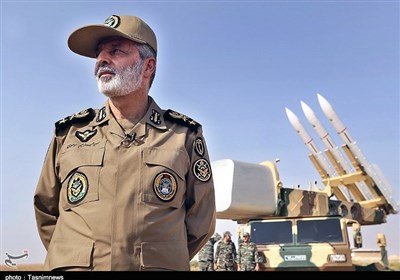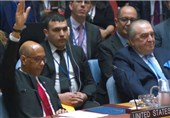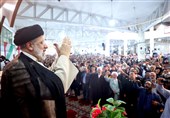EU Urges Israel to End Detention of Chronically-Ill Palestinian Teenager
TEHRAN (Tasnim) – The European Union the Israeli regime to end the imprisonment without charge or trial of a chronically-ill Palestinian teenager under a controversial detention policy.
The so-called “administrative detention” policy allows the indefinite detention of prisoners based on “secret evidence” that neither the detainee nor his lawyer is allowed to see.
The European Union Delegation to the Palestinians (DPAL) took to Twitter on Tuesday to denounce the Tel Aviv regime’s practice against 17-year-old Amal Muamar Nakhleh, the official Palestinian news agency WAFA reported.
The delegation stated that the Palestinian teenager’s detention has been extended until May 18, arguing that he has been detained by Israeli officials since January 19 last year without being informed of the charges against him.
The DPAL commented on Nakhleh’s serious medical condition, saying, “He suffers from a severe autoimmune disease, and imprisonment poses significant risks to his health.”
“Under international law, children and their rights must be protected, and the use of administrative detention without formal charges must cease,” it concluded, according to Press TV.
The UN agency for Palestinian refugees UNRWA has already demanded the immediate release of Nakhleh from administrative detention on urgent humanitarian grounds, and stated it is highly concerned about the ongoing arbitrary detention of the minor.
Israeli forces first arrested the Palestinian teenager in the occupied West Bank back in November 2020.
His family said Amal was out with friends at the time after he had undergone surgery to remove a cancerous mass. The teen suffers from myasthenia gravis – a rare neuromuscular disease.
Nakhleh was accused of throwing stones at Israeli soldiers, and was held for 40 days. He was then set free by an Israeli judge.
In January last year, the ill Palestinian teen was re-arrested and placed in administrative detention, which has now been renewed again.
Neither Amal nor his family are aware of the charges against him and have been informed by the Israeli authorities that it is a “confidential administrative case.”
Amal’s severe autoimmune disease requires continuous medical treatment and monitoring. Due to his health conditions, he cannot be vaccinated against COVID-19 and must take immune-suppressants, meaning that his life is at high risk if he contracts coronavirus.
The Palestinian Prisoners Society (PPS) said earlier this month that Israeli officials issued 1,595 administrative detention orders against Palestinians in the occupied territories in 2021, with 200 Palestinians detained under the inhumane policy in May when the regime launched the 11-day war on the besieged Gaza Strip.
The PPS said 60 Palestinian detainees, who were mostly held in administrative detention, have resorted to hunger strike to regain their freedom, including Hisham Abu Hawwash. Abu Hawwash, who had been on hunger strike for 141 days, agreed earlier this month to end his fast after reaching a deal with Israel to be released next month.
There are reportedly more than 7,000 Palestinians held at Israeli jails. Hundreds of the inmates have been apparently incarcerated under the practice of the so-called administrative detention.
Palestinians and human rights groups say "administrative detention" violates the right to due process since evidence is withheld from prisoners while they are held for lengthy periods without being charged, tried, or convicted.
The detention takes place on orders from a military commander and on the basis of what the Israeli regime describes as ‘secret’ evidence.
Rights groups describe Israel’s use of administrative detention as a “bankrupt tactic” and have long called on the regime to bring the practice to an end.






